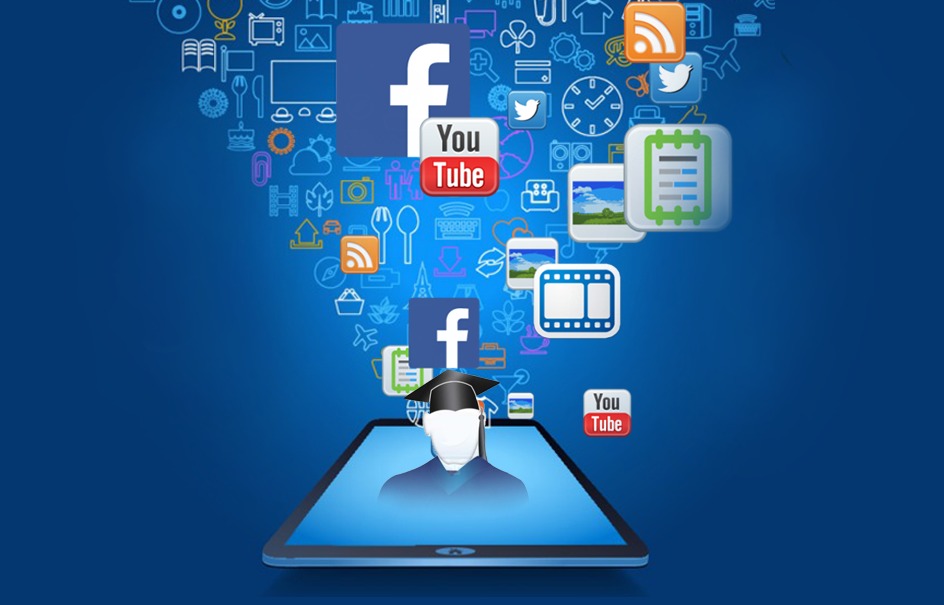The digital age has transformed the way we communicate, share information, and connect with others. Among various demographics, those with a college education have increasingly embraced social media platforms, utilizing them for multiple purposes. As we delve into this phenomenon, we will uncover the unique ways in which college-educated individuals engage with social media and the implications of their online presence. The intersection of higher education and social media usage presents a compelling landscape that merits exploration.
From networking opportunities to information dissemination, social media serves as a powerful tool for college graduates. These platforms not only facilitate personal connections but also provide avenues for professional growth, skill development, and community engagement. As we investigate the multifaceted nature of social media use among this demographic, we will consider the motivations behind their online habits and the potential consequences of their digital footprints.
As we navigate the complexities of social media usage, it becomes essential to understand how college-educated individuals leverage these platforms for their benefit. By examining the trends, challenges, and opportunities that arise from their online interactions, we can gain valuable insights into the broader implications of social media in today’s society. Let us embark on this journey by addressing some key questions surrounding the topic, specifically focusing on those with a college education, use of social media.
What Are the Primary Reasons College-Educated Individuals Use Social Media?
College-educated individuals utilize social media for various reasons, which can include:
- Networking: Building professional connections and expanding career opportunities.
- Information Sharing: Staying updated on industry trends, news, and educational content.
- Community Engagement: Participating in discussions and advocacy related to social issues.
- Personal Branding: Curating a professional image and showcasing skills and achievements.
How Does Social Media Influence Professional Opportunities?
Social media has a significant impact on job search and career advancement for college-educated individuals. Platforms like LinkedIn allow users to connect with potential employers and showcase their resumes, portfolios, and achievements. Furthermore, social media can help individuals gain insight into company cultures, industry trends, and networking events that may lead to job opportunities.
Are There Risks Associated with Social Media Usage?
While social media can be advantageous, it also poses several risks for college-educated users, such as:
- Privacy Concerns: Sharing personal information can lead to security threats and identity theft.
- Reputation Management: Negative comments or posts can impact one’s professional image.
- Information Overload: The vast amount of content can lead to confusion and decision fatigue.
What Role Does Social Media Play in Continuing Education?
Social media platforms serve as valuable resources for lifelong learning among college-educated individuals. They can access webinars, online courses, and informative articles that enhance their knowledge and skill sets. Additionally, social media fosters a sense of community among learners, allowing them to share experiences and insights.
How Do College-Educated Individuals Balance Personal and Professional Use of Social Media?
Finding the right balance between personal and professional social media usage can be challenging. Many college-educated individuals create separate accounts for personal and professional interactions to maintain boundaries. They may also adopt different strategies when posting content, ensuring that their professional image remains intact while still engaging in personal expression.
What Are the Trends in Social Media Usage Among College Graduates?
Recent studies indicate that college-educated individuals are increasingly favoring platforms like Instagram and Twitter for personal expression, while LinkedIn remains a dominant choice for professional networking. Additionally, video content has gained popularity, with platforms like TikTok and YouTube becoming valuable tools for sharing educational content and insights.
Conclusion: What Does the Future Hold for College-Educated Individuals and Social Media?
As we look to the future, the relationship between college-educated individuals and social media will likely continue to evolve. New platforms may emerge, and existing ones may adapt to meet the changing needs of users. By staying informed about trends and challenges, college graduates can harness the power of social media to further their personal and professional goals while navigating the complexities of the digital landscape.
You Might Also Like
Moza R3 Vs R5: Which Gimbal Stabilizer Is Right For You?Unveiling Chrishell Stause: Height, Weight, And More
Exploring The Ideals Of The French Revolution
Understanding The Segments Of The Population: Bridging The Disconnect
Unveiling The Mystery Of Jonathan Dinklage Height
Article Recommendations
- Discovering Layla Jenner A Journey Through Her Life And Career
- Vedang Raina Parents
- Discovering The Life Of Lee Dong Wook And His Children

:format(png)/media/what-social-media-app-do-student-use-RQ.png)
